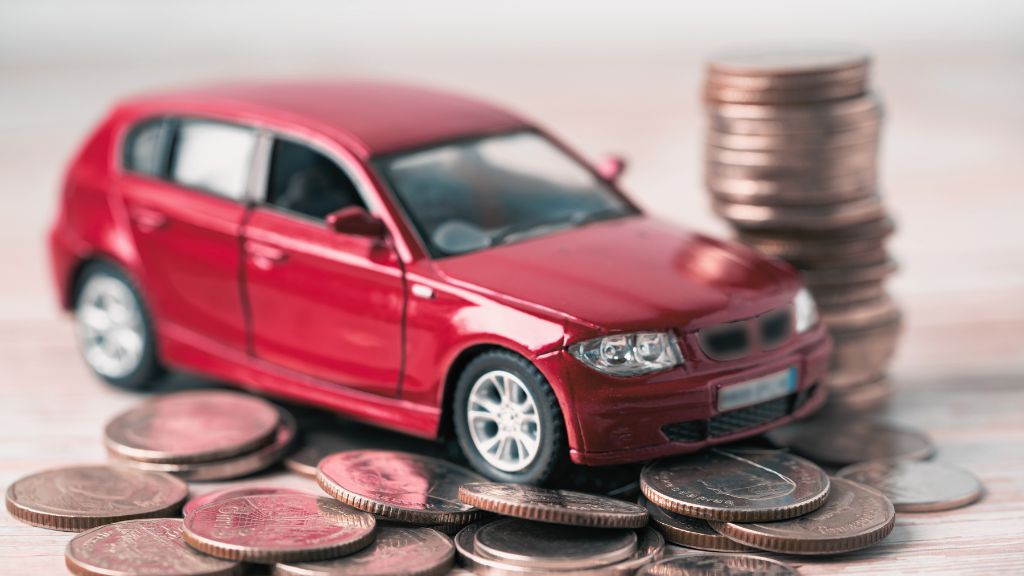When deciding whether to own or lease a car, it’s important to consider the advantages of each option. Owning a car and leasing a car both have their benefits, but today we’ll focus on the advantages of owning a car over leasing one.
We’ll explore which example shows an advantage of owning a car over leasing one. By the end of this blog, you should have a clear understanding of the key advantages of car ownership.
Which Example Shows an Advantage of Owning a Car Over Leasing One?
Example 1: Long-Term Savings
Owning a Car: When you buy a car, you make monthly payments until the car is paid off. After the loan is paid off, you own the car outright and no longer have monthly payments.
Leasing a Car: When you lease a car, you make monthly payments for the duration of the lease, usually two to three years. At the end of the lease, you either return the car and lease another one or buy the car.
Advantage of Owning: In the long term, owning a car can save you money. After you finish paying off your car loan, you no longer have to make monthly payments, which means more money in your pocket. On the other hand, if you lease, you will always have monthly payments because leases are short-term and need to be renewed.
Also read: Which Payment Option Could Have Interest Charged to You?
Example 2: No Mileage Limits
Owning a Car: When you own a car, you can drive as much as you want without worrying about extra charges.
Leasing a Car: Leases often come with mileage limits, usually between 10,000 and 15,000 miles per year. If you exceed these limits, you have to pay extra fees for every mile over the limit.
Advantage of Owning: Owning a car is a great choice if you drive a lot. You don’t have to worry about counting miles or paying additional fees for driving more than the allowed mileage. This is especially important for people with long commutes or those who enjoy road trips.
Example 3: Customization
Owning a Car: When you own a car, you can customize it to fit your personal style and needs. You can change the paint color, add new wheels, install a better sound system, or make any other modifications you desire.
Leasing a Car: Leased cars must be returned in their original condition. Any modifications or customizations can lead to additional charges when you return the car.
Advantage of Owning: If you enjoy personalizing your car, owning it gives you the freedom to make any changes you want without worrying about penalties. This means you can create a car that truly feels like your own.
Example 4: Building Equity
Owning a Car: When you make payments on a car loan, you build equity. This means that over time, you own more and more of the car until it’s completely yours.
Leasing a Car: When you lease, you don’t build equity because you’re essentially renting the car. You pay for the use of the car, but at the end of the lease, you don’t own anything.
Advantage of Owning: Building equity is a key financial advantage of owning a car. Once your car loan is paid off, the car is yours to keep, sell, or trade in. This can be a valuable asset that can help you finance your next car purchase.
Example 5: No End-of-Lease Charges
Owning a Car: When you own a car, you don’t have to worry about returning it in a specific condition or facing end-of-lease charges.
Leasing a Car: Leases come with terms and conditions about the car’s condition. If there is any damage beyond normal wear and tear, you may be charged for repairs when you return the car.
Advantage of Owning: Owning a car means you avoid the hassle and potential costs associated with end-of-lease charges. You don’t have to stress about minor damages or the car’s condition when it’s time to get a new vehicle.
Example 6: Flexibility in Use
Owning a Car: When you own a car, you have complete flexibility in how you use it. Whether you want to go on a long road trip, let a friend borrow it, or use it for business purposes, the choice is yours.
Leasing a Car: Leasing agreements often come with restrictions on how you can use the car. For example, using a leased car for business or commercial purposes may not be allowed.
Advantage of Owning: Owning a car gives you the ultimate freedom to use your vehicle however you need without worrying about violating any lease terms. This flexibility is especially useful for people who have diverse needs for their vehicle.
Example 7: Financial Predictability
Owning a Car: Once you pay off your car loan, your monthly expenses decrease significantly. You only need to budget for maintenance, insurance, and fuel.
Leasing a Car: Leasing involves continuous monthly payments. Additionally, there can be unpredictable costs at the end of the lease, such as fees for excess mileage or wear and tear.
Advantage of Owning: Owning a car provides more financial predictability. After the loan is paid off, you have fewer monthly expenses, allowing for better financial planning and savings.
Also read: How Can Goal Setting Help With Academic Performance?
Example 8: Resale Value
Owning a Car: When you own a car, you have the option to sell it whenever you choose. Even after several years, your car will have some resale value, which can be used towards purchasing your next vehicle.
Leasing a Car: At the end of a lease, you return the car to the dealer with no resale value to you.
Advantage of Owning: Owning a car allows you to benefit from its resale value. This can provide a significant financial boost when you decide to sell your car and buy a new one.
Conclusion
Owning a car has several clear advantages over leasing one. From long-term savings and no mileage limits to customization and building equity, car ownership offers benefits that leasing simply can’t match. Additionally, owning a car provides financial predictability, flexibility in use, and the opportunity to benefit from the car’s resale value.
While leasing can be a good option for some people, the advantages of owning a car often make it the better choice for those looking for long-term value and freedom.


